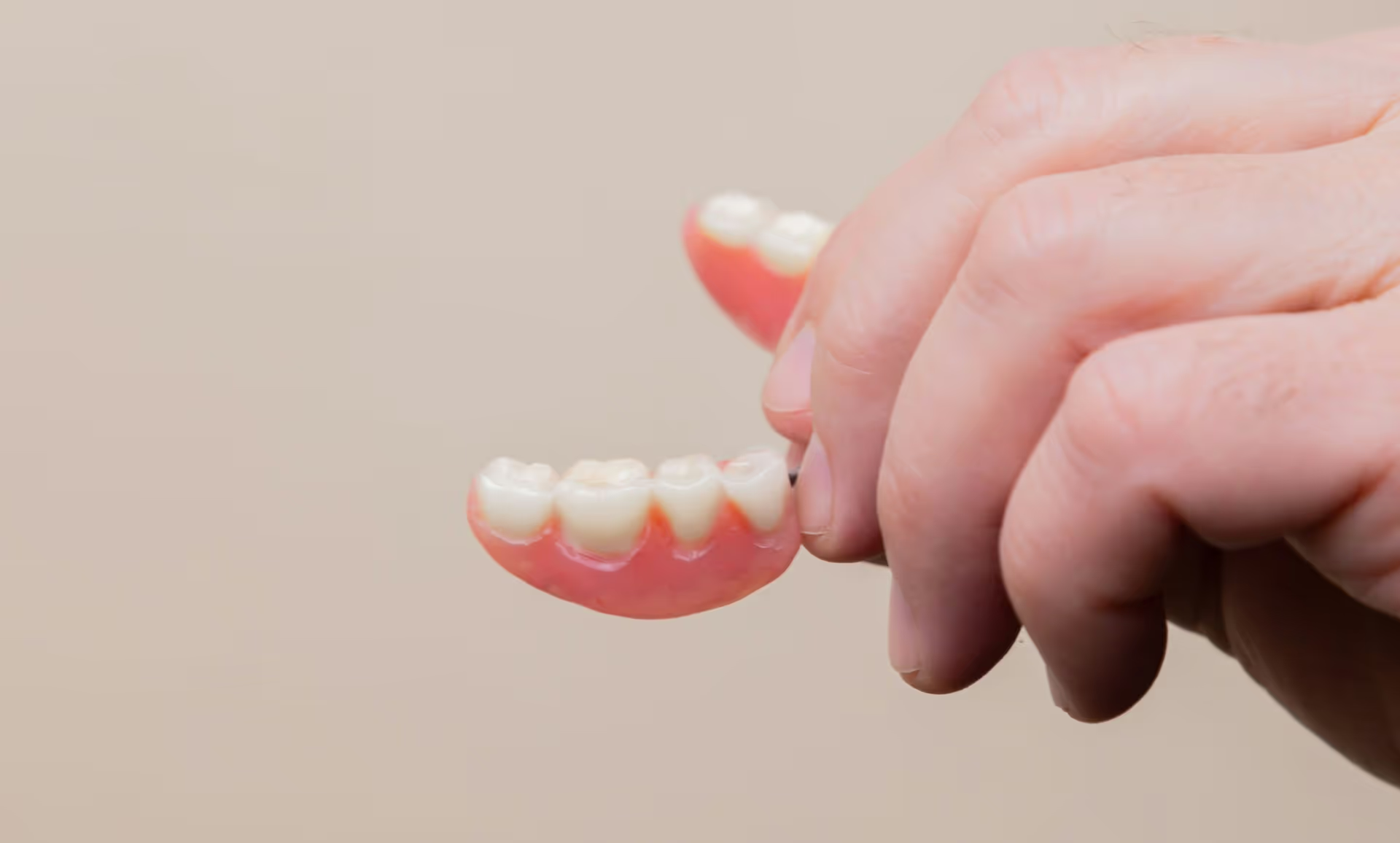 By: Dr. Isaac M. Alshrouf
By: Dr. Isaac M. Alshrouf Immediate dentures can feel like a significant change as you transition into wearing them. They're designed to fit your mouth as soon as your teeth are extracted, offering a quick and convenient solution. However, adjusting to them takes some patience and understanding. During the first few weeks, it's all about getting comfortable and learning how to care for them properly so that they enhance your daily life rather than hinder it.
To make the adjustment smooth, it's helpful to know more about immediate dentures and how they differ from other options. Embracing these changes early on can make a big difference in comfort and confidence. Let's explore what immediate dentures are, why they might be right for you, and some practical tips for those initial weeks.
Immediate dentures are crafted to fit your mouth right after teeth extraction, avoiding any waiting time for your gums to heal first. This efficient approach means you can maintain your smile immediately without any toothless gaps. Compared to other denture types, immediate dentures offer unique advantages, such as instant aesthetics and functionality.
These dentures differ from other forms, including full dentures and partial dentures. Full dentures replace an entire set of teeth, while partial dentures only replace a few missing teeth. Another variation, implant-supported dentures, are anchored into the jawbone for increased stability. Although each type has its benefits, immediate dentures stand out for providing a swift solution.
The benefits of immediate dentures include maintaining facial structure and ensuring you can speak and eat comfortably without a waiting period. However, they require a period of adjustment as your mouth heals, which might involve feeling some slight discomfort at first. It's essential to manage this transition carefully to make the most of the benefits.
As you start using your immediate dentures, expect a few changes. Understanding what's normal can help set realistic expectations:
- Initially, some discomfort is common. Use mild pain relievers as advised by your dentist to ease this transition.
- Stick to soft foods like mashed potatoes, yogurt, and scrambled eggs to gradually get accustomed to chewing.
- Practice speaking by reading aloud to adjust your speech patterns comfortably.
Maintain good care practices from the start. Clean your dentures daily to prevent stains and ensure they last longer. Soak them overnight in a dental cleansing solution and brush them gently with a soft brush. Your mouth needs care too, so rinse with a mouthwash designed to soothe gums.
Incorporating these tips during the first few days can make a significant difference in your comfort and how quickly you adapt. Remember, it's a process, and easing into it slowly will help.
Once you're beyond the initial few days, your gums will start to heal, and you'll notice your immediate dentures might feel a little loose. This change is normal as your gums will shrink and reshape over time. To address these changes, make sure to keep up with your follow-up appointments. These visits allow your dentist to make any necessary adjustments, ensuring the best fit as you heal.
Managing discomfort during this time is crucial. Rinsing your mouth with warm salt water can soothe your gums and help reduce any soreness. It's also important to gradually return to your usual diet by slowly introducing more solid foods. Continue practicing speech exercises to maintain clarity when speaking, which can help boost your confidence when chatting with others.
Here are a few tips to help you through these weeks:
- Stick to your dentist’s advice on wearing and removing your dentures as your mouth heals.
- Pay attention to any sore spots or pain and report it to your dentist promptly.
- Keep experimenting with different foods to find what works best for your new bite.
When it comes to long-term care, maintaining a routine is key. Daily cleaning is necessary to avoid any plaque buildup or stains on your immediate dentures. Use a non-abrasive cleaner specifically designed for dentures and ensure you handle them with care to prevent damage.
It's important to be aware of the signs that signify your dentures might need a check-up or replacement. These include persistent discomfort, noticeable wear, or if they feel like they’re not fitting properly anymore. Be proactive with dental exams and maintain regular check-ups to ensure everything is in good shape. These appointments can help catch potential issues early and keep your mouth healthy.
- Keep an eye out for signs that indicate your dentures may need repairs, such as visible chips or cracks.
- Regular dental visits are vital for checking fit and ensuring the health of your mouth.
- Consider additional preventive measures like fluoride treatment or mouth guards if recommended by your dentist.
Figuring out how to live with immediate dentures takes time and patience, but by making the effort to adapt, you can enjoy clear benefits. Stay patient and flexible as you adjust, and remember that the supportive network of dental care is there to help you along the way. A well-fitted set of dentures can significantly improve your quality of life, allowing you to eat, speak, and smile with renewed confidence.
Taking these steps seriously will lead you to appreciate the convenience and practicality of your new dentures. Embrace the journey, knowing it's a pathway to better oral health and improved daily function. Keep up with your care routine and stay connected with your dental team whenever you need assistance or advice about your dentures.
If you're learning how to adjust to dentures after extraction, the team at Shrouf Dental House is here to make the process smoother. Let us walk with you through each step and ensure lasting comfort with your new smile. Explore how we can help with immediate dentures in The Villages and get the support you need to feel confident again.